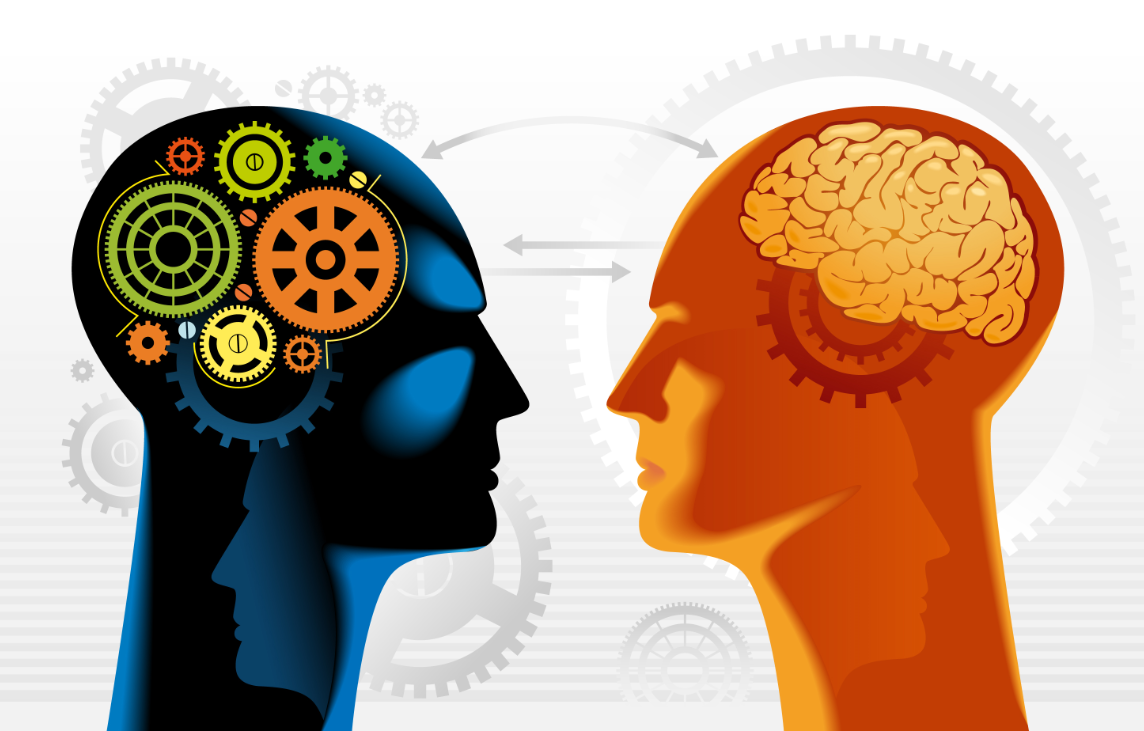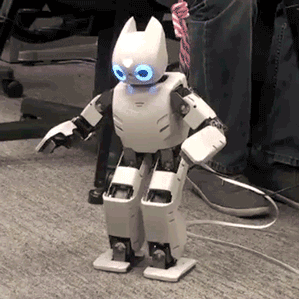Technological Singularity
What It Is
Technological singularity is the moment in time that
computers’ intelligence levels exceed human intelligence levels, dramatically
altering human society. In The Computer
and the Brain, John von Neumann wrote about technology changing human life
in the future, and created the term technological singularity. Human
intelligence levels have slowly been increasing and evolving over time.
However, in recent history, intelligence levels of computers have gone up
dramatically. In the near future, machines will likely become more intelligent
than humans.
When It Will Happen
Many different experts have varying opinions on when the
technological singularity will occur. Ray Kurzweil, an expert on technological
singularity, estimates that by 2020 computers will be powerful enough to
simulate the human brain, but won’t be able to reverse engineer the brain until
2029. By 2045, Kurzweil estimates that human intelligence will have expanded by
a billion times. However, experts at the Asilomar Conference on AI in
California differ in their estimates of the technological singularity, ranging
from 20 to 1,000 years.
The Turing Test
The Turing Test, created in 1951, was devised by Alan Turing
to resolve the conflict of machine intelligence. In the Turing test, there are
three components: the judge, artificial intelligence (AI), and human opponent.
The AI and its human opponent will communicate to the judge through computers,
and answer questions that the judge will ask them. Then, the judge has to
determine which one is the computer and which is the human. If the judge has
less than a 50% accuracy rate, then the AI is able to simulate the human brain,
and therefore be intelligent.
However, a lot of controversy remains around the Turing Test. While many believe that human interaction shows intelligence, some think that the Turing Test is not relevant to the overall intelligence of the machines. They believe that if the computers pass the Turing Test, then the machine only demonstrated human behavior, and not really any cognitive ability.
Natural Processing Language
To pass the Turing Test, programmers realized that they
needed to defeat one of the biggest obstacles in machine intelligence:
language. Many programs were created that all had one main design. They used
databases of English words and then combined that against a series of rules for
making sentences. Most of these programs were unsuccessful, but some became
effective and popular. One of the most well known programs was ELIZA. Created
by Joseph Weizenbaum in 1966, ELIZA was made to simulate a Rogerian therapist
(passive, listening, asking things like, “How does that make you feel?” etc.).
Smartest Machines of Today
Watson
Named
after IBM’s founder, Watson is a computer that was created by IBM was designed
to be on Jeopardy. With artificial
intelligence and analytical software, Watson is a perfect computer for
answering difficult trivia questions. It is extremely fast, processing at 80
teraflops (trillion floating-point operations per second). In order to simulate
a human’s ability to analyze, remember, and understand information, Watson can
access 90 servers with over 200 million pages of data, which it then compares
against 6 million logic rules. The entire supercomputer and its data are the
size of 10 refrigerators.
Today, robots are being programmed to think, learn, and feel
like human beings. Pepper, the “emotional” robot, can interact with people,
judge their emotions, and react accordingly. In fact, robots today can even
learn like people do.
This is Darwin, a robot who is trying to walk. Not too
impressive, until you realize that Darwin is actually teaching itself to walk.
This robot was programmed to simulate the human brain, and therefore can learn
things. This is a huge advancement in the field of robotics, because in the
future, robots could learn from new situations and become very
intelligent.
Today, there are many different programs that are designed to carry out various tasks. However, the hope for the future is that there will be robots that can analyze and adapt to situations. Then, robots will be able to do many more things with less programming work. However, this requires the ability to learn, which Darwin is currently doing. In the future, robots will be able to learn more and more, and will even become more intelligent that humans.
With technology, humans will live longer, and be faster, stronger, smarter, and better that we are today. Technological singularity will happen in the near future, and it will dramatically alter human society.




Artificial Intelligence is very important digital transformation technology to our daily lives, business operations and society. This blog contains lots of information about AI. Thanks
ReplyDeleteArtificial Intelligence
Artificial Intelligence becomes more familiar in all IT industries. Thanks for sharing such an informational blog.
ReplyDeleteLooking for Digital Transformation Company in Dubai? Reach Way2Smile.